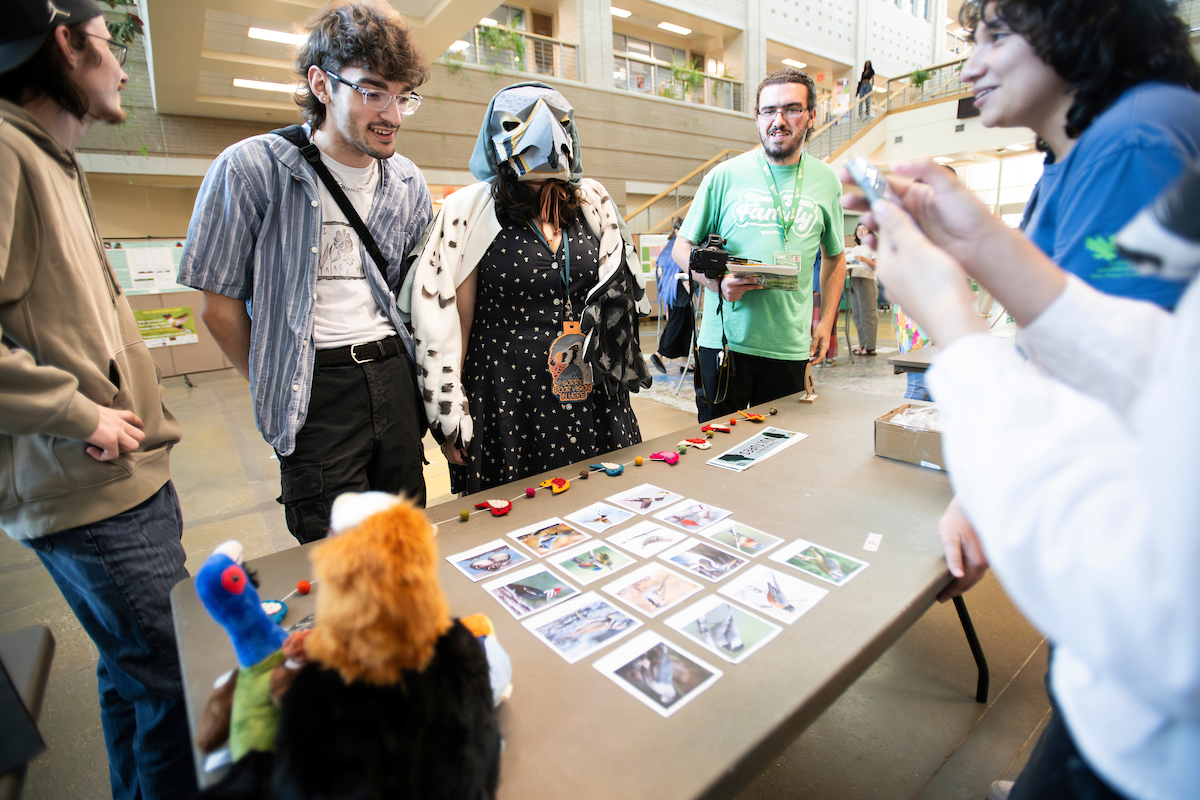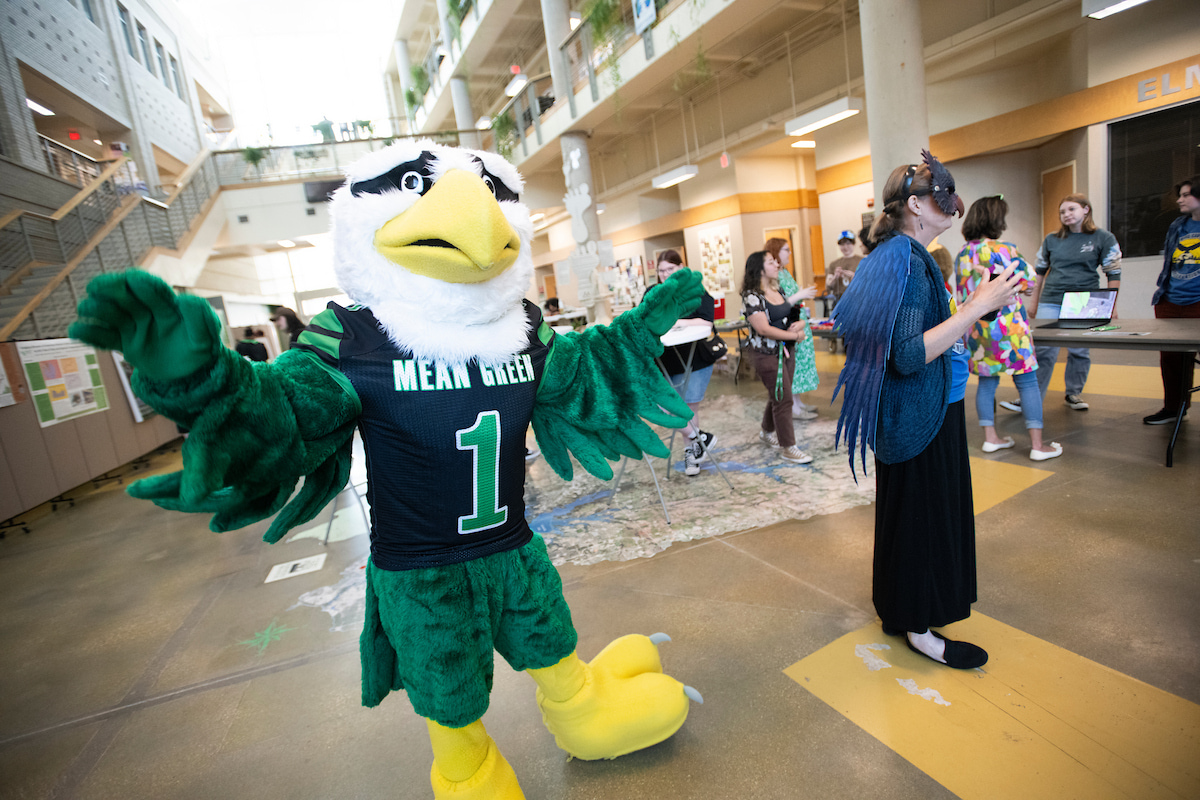
DENTON (UNT), Texas — At the University of North Texas, members of the UNT Bird Campus Committee are up before 6 a.m. for six weeks each semester, working to make the environment better for birds. That dedication — and a range of other conservation efforts — has helped the City of Denton earn a new certification: Bird City Texas.
“This is something we’ve been working towards since the committee started in 2021,” said Jaime Baxter-Slye, faculty advisor and clinical assistant professor of ecology. “We started the application with the city three years ago, and we’re so proud to say that this year we got it. It’s not a one-time effort. We have to keep building on our work, and that takes a team. We’re so grateful for everyone who supports us — from facilities staff to the UNT grounds crew.”
The Bird City Texas designation is awarded by Audubon Texas and the Texas Parks and Wildlife Department to cities that demonstrate a strong commitment to bird conservation and creating healthy habitats. The recognition highlights communities that make meaningful efforts to ensure birds, other wildlife and people can thrive together. Denton received this honor by standing out in three key areas: engaging the community in conversation efforts, enhancing natural habitats and implementing measures that promote bird safety.
"The City of Denton is thrilled to have led efforts over the past three years that culminated in our recognition as a Bird City Texas," said Katherine Barnett, sustainability manager for the city. "This certification reflects our community's deep commitment to conservation and our ongoing efforts to create a welcoming environment for birds and all wildlife within our city. We are happy to partner with the UNT Bird Campus Committee on this initiative and appreciate their contributions."
The UNT Bird Campus Committee, a We Mean Green Fund initiative focused on educating students about the vital role birds play in ecosystems, was a major contributor to the certification. According to the committee, it was the first program in Texas to receive official recognition as an Audubon on Campus site.
“It’s important to have organizations like this teach younger generations how to provide and advocate for safe spaces for birds,” said committee chair and ecology senior Ashley Giron.
One notable project from the Bird Campus Committee — a study tracking bird-window collisions — played a meaningful role in strengthening Denton’s application. Volunteers in the study tracked where bird strikes occur by monitoring buildings for injured or fallen birds. Even birds that appear to recover after a collision may not always survive.
“Bird strikes are the second-leading cause of bird deaths after predation by cats,” Giron said. “Bird-safe glass is the best solution, but even placing a few stickers or sticky notes on an office or dorm window can help break up reflections and prevent collisions.”
The committee also promotes native landscaping as part of its conservation work. Projects like the Parking Lot Preserve and the Pecan Creek Pollinative Prairie showcase UNT’s commitment to supporting native plant species and healthy bird habitats. Located at Discovery Park, the four-acre prairie is the university’s largest native planting area. The Bird Campus Committee tracks bird activity there using its iNaturalist page and has recorded 77 different species, including near-threatened birds like the Harris’s Sparrow and Eastern Meadowlark.
“These spaces are designed to increase native plant life on campus, which leads to more biodiversity. We’ve seen the number of native birds in the area skyrocket,” said Mackenzie Davis, a senior studying ecology and Vice-Chair of the Bird Campus Committee. “One of our popular features is the bluebird boxes. We can bring people out to monitor nests and even show them how we band chicks. It’s a great hands-on experience, especially for those who haven’t done fieldwork before.”

To celebrate the city’s achievement and the committee’s ongoing efforts, the group hosted an event at UNT’s Environmental Education, Science & Technology Building. The evening included research showcases by committee members, bird-themed trivia and informational tables from organizations like the Texas Conservation Alliance and the Smithsonian’s Bird Friendly Coffee program.
“I think it’s awesome to see the Bird Campus Committee being celebrated for all their hard work,” said Madison Rutherford, a UNT master's student in environmental science. “It’s been two years in the making, with so many moving parts coming together. It’s great to finally celebrate this achievement.”